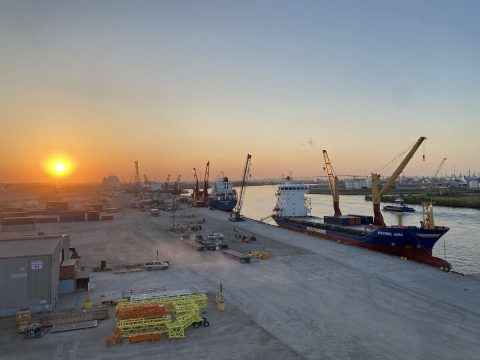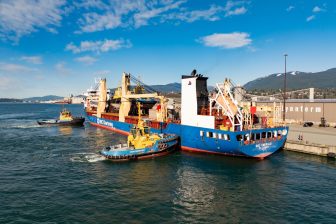
UNCTAD calls for global collaboration to expedite shipping decarbonisation
UNCTAD, the UN’s trade body has called for a system-wide collaboration, swift regulatory interventions, and robust investments in green technologies and fleets to decarbonize maritime transport amid growing carbon emissions and regulatory uncertainty.
UNCTAD is urging a transition to cleaner fuels in the shipping industry, highlighting the importance of an environmentally efficient, fair, just, inclusive, and equitable strategy. Despite the majority of ships still relying on conventional fuels, the report highlights positive advancements, such as 21 per cent of newly ordered vessels being designed for alternative fuels.
Mounting costs
However, in its Review of Maritime Transport 2023, UNCTAD said that an additional $8 billion to $28 billion will be required annually to decarbonize ships by 2050, and even more substantial investments, ranging from $28 billion to $90 billion annually, will be needed to develop infrastructure for 100 per cent carbon-neutral fuels by 2050.
Full decarbonisation could elevate annual fuel expenses by 70 per cent to 100 per cent, potentially affecting small island developing states (SIDS) and least developed countries (LDCs) that heavily rely on maritime transport.
To ensure an equitable transition, UNCTAD calls for a universal regulatory framework applicable to all ships, irrespective of their registration flags, ownership or operational areas, thereby avoiding a two-speed decarbonisation process and maintaining a level playing field.
Shamika N. Sirimanne, UNCTAD’s director of technology and logistics, said, “Economic incentives, such as levies or contributions paid in relation to shipping emissions may incentivize action, can promote the competitiveness of alternative fuels and narrow the cost gap with conventional heavy fuels.”
“These funds could also facilitate investments in ports in SIDS and LDCs, focusing on climate change adaptation, trade and transport reforms, as well as digital connectivity,” Sirimanne added.
An ageing global fleet and digitalisation
The ageing global shipping fleet has raised concerns with the UNCTAD. Commercial ships are now, on average, 22.2 years old, which is two years older than a decade ago. Over half of the world’s fleet is over 15 years old.
Shipowners are faced with the challenge of renewing their fleets and struggle with a lack of clarity regarding alternative fuels, green technology, and regulatory regimes. This also poses a challenge for port terminals making vital investment decisions.
In addition to cleaner fuels, UNCTAD underscores the role of digitalization in accelerating decarbonisation efforts, citing the benefits in enhancing efficiency and reducing delays.
“Investing in digitalization and technology will improve predictability and reliability of shipping, and applying technologies such as AI, machine learning, blockchain and the internet of things will result in performance optimization for monitoring, routing, speed and predictive maintenance – which can all help accelerate decarbonisation,” Sirimanne said.
Resilient shipping industry despite shifting patterns
The Review of Maritime Transport discusses the impact of global events such as the war in Ukraine on global trade patterns, highlighting the resilience of the shipping industry but acknowledging the challenges of balancing supply and demand.
In 2022, disruptions caused by the war led to record-breaking oil cargo distances and grain shipments that travelled further than ever before, forcing grain-importing countries to seek alternative exporters like the US and Brazil, which require long-haul shipping.
Despite a slight decrease in total maritime trade volumes in 2022, the industry predicts a 2.4 per cent growth in 2023, with containerized trade projected to expand by 1.2 per cent in 2023 and more than 3 per cent between 2024 and 2028.
While oil and gas trade volumes experienced strong growth in 2022 and tanker freight rates saw a strong revival due to geopolitical events, dry bulk rates faced volatility due to shifting demand, port congestion, geopolitical tensions, and weather disruptions.
You just read one of our premium articles free of charge
Register now to keep reading premium articles.




